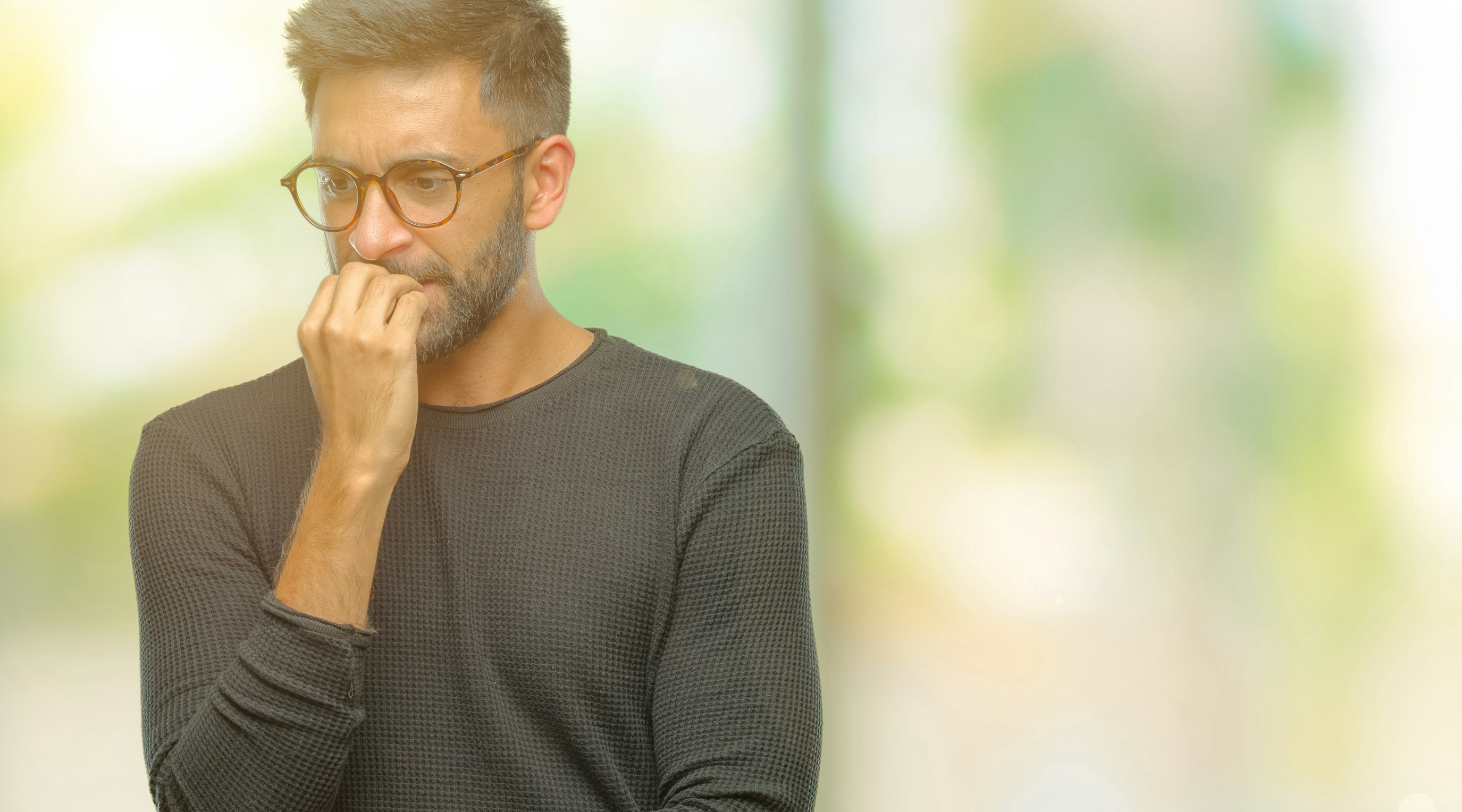How to know if CBD is working for anxiety
7 min read
Sam North
CBD (a non-intoxicating cannabinoid found in both hemp and cannabis), has quickly become a popular natural therapeutic option for anxiety sufferers worldwide. Despite the need for further research into the cannabinoid before making any definitive statements regarding its effectiveness in reducing anxiety, the available data suggests that CBD may provide relief for a broad range of anxiety-related issues.
Contents
On top of the current science pointing towards CBD being a great option for potentially reducing anxiety, there is a backlog of anecdotal evidence from patients who swear by it. As such, many people in the UK are starting to turn to CBD to help ease the symptoms of anxiety and, thanks to the November 2018 legislation changes regarding medicinal cannabis, they are doing so legally.
Even so, a large proportion of patients that have never taken cannabis are wary of the idea of administering what has, for so long, been considered an illegal drug as a medicine. And rightfully so. Cannabis has been demonised for close to a century. While the stigma surrounding it is slowly being replaced by education and scientific proof, many people still remain unconvinced that CBD may be the solution to their anxiety.
The concept of using medical cannabis for anxiety is still relatively new to many, despite the growing evidence supporting its potential benefits. In this article, we will run through all of the current evidence to see exactly what the science is saying about CBD, and how it may (or may not) be helpful for anxiety sufferers.
How CBD works for anxiety
CBD interacts with the human body through the endocannabinoid system (ECS). The ECS is a vast network of interconnected cells and receptors that helps to regulate virtually every function in the body, from appetite control to perception, memory to hunger, sleep and more.
While researchers are still searching for the answer to exactly how CBD affects the body, there are some leading theories.
The head of the pack is that CBD actually reduces the ability of the ECS enzymes to break down our own cannabinoids, which allows our cannabinoids to remain in the system for longer, extending their intended effects.
Another avenue of study is showing that CBD could impact serotonin production. Serotonin is a neurotransmitter associated with feelings of well-being and happiness, and as such it can play a vital role in managing anxiety. Without adequate levels of serotonin, anxiety can often become overwhelming. CBD has been shown to have the potential to increase serotonin levels in the brain, which could improve our capacity to manage anxiety-like symptoms.
Research is also pointing out that CBD may have a positive impact on sleep health. People suffering from anxiety disorders frequently find that symptoms can become hard to manage, especially when they are not getting enough sleep. Preliminary studies into CBD's ability to help increase sleep hours are promising, with one paper showing that sleep scores improved within one month of CBD treatment in 66.7% of patients, although these scores did fluctuate over time. The same paper showed that more than 79.2% of patients experienced improved anxiety levels.
Factors that affect CBD's effectiveness
The three main factors that need to be taken into account when it comes to the potential effectiveness of CBD in anxiety reduction are:
- Dosage size
- Frequency of treatment
- Method of consumption
It is important to note that the dosages administered in studies to determine CBD's effectiveness can vary drastically. While you may see the dosage of CBD for mental health issues reaching into the hundreds of milligrams per day range in some supporting studies, and this may seem like a large amount, the fact that CBD is non-intoxicating allows it to be a safe substance to experiment with.
In terms of anxiety control, the current science points to a dose of between 300 and 600 mg per day as having the potential to be effective at reducing subjective anxiety.
Keep in mind that it can take a few weeks of regular administration before patients begin to notice any positive outcomes, especially when the dose is lower. And there is some evidence that doses as low as 25 mg per day may be effective for anxiety reduction.
When starting any treatment, your prescribing doctor may recommend you start on a lower dose and slowly increase it over a period of time if the desired effects have not been achieved. Again, it is imperative that you discuss dosage sizing with the medical professional prescribing the medicinal cannabis options.
As for the frequency of treatment, this is also an area open to experimentation. Most healthcare professionals agree that daily usage of CBD over an extended period is, potentially, the most effective form of treatment, but this is an area that needs to be investigated further before we can draw any formal conclusions.
Finally, the method of administration is also something that needs to be taken into consideration when it comes to CBD and anxiety. CBD treatment options come in a wide range of forms, from oils and tinctures to edibles, vape pens and even topical treatments. Each of these administration methods has its own pros and cons, with CBD oil being the most commonly prescribed option for anxiety-related conditions.
With all of this in mind, it is important to work with your healthcare provider to determine the best dosage and method of consumption and to always source any and all CBD products from reputable sources. With the recent influx of over-the-counter CBD products, it is essential to ensure that any CBD product you take has been tested and verified as safe for consumption. Ultimately, if administered responsibly, CBD has the possibility of becoming a powerful addition to any current anxiety management plan.
How to know if CBD is working for anxiety?
When looking at tracking the effectiveness of CBD as an anxiety treatment option, there are a few key ways to determine if it is working. The most commonly employed method of tracking the effect of CBD on anxiety levels is to keep a journal and record any changes in mood or behaviour.
You should note that it can take up to four weeks for patients to start seeing the effects of CBD, so patience is required when starting any new treatment. Journaling is a great tool to track any positive changes or side effects that may result from taking CBD.
In addition to journaling, it is essential to have regular check-ins with your healthcare provider to discuss any effects that you may be experiencing. This is especially important if you are using CBD as an adjunct therapy, as your healthcare provider will be able to adjust or modify any existing treatments that you may be on.
You may also be monitored by your doctor using an anxiety questionnaire before and during treatment. Commonly used is the GAD-7. This is a useful tool to give a numerical value to the severity of your anxiety and therefore provides a great visual way to help you monitor if your anxiety is getting better, worse, or staying the same.
Conclusion
Overall, the current evidence shows that CBD is very likely a potent and viable treatment option for those suffering from anxiety-related issues. Although more research is needed to verify the extent of CBD's effectiveness, an increasing number of peer-reviewed studies are pointing to the potential therapeutic benefits of this compound.
CBD should always be administered in conjunction with therapy, and with conventional pharmaceuticals when necessary. Furthermore, a consultation with a doctor is essential to determine the most effective dosage and administration methods for your individual needs.
Accessing medical cannabis can be challenging due to the stigma surrounding it. However, Releaf makes it simple with our tailored monthly packages, specialist consultations for medical cannabis, and a unique medical cannabis card for protection, all based on your cannabis prescription.
Share article
Did you like this article?
It is important to seek medical advice before starting any new treatments. The patient advisors at Releaf are available to provide expert advice and support. Alternatively, click here to book a consultation with one of our specialist doctors.
Elevate your wellness with medical cannabis
Get comprehensive care, convenience, and confidence with an all-in-one treatment plan.
Am I eligible?Authors
Sam North, a seasoned writer with over five years' experience and expertise in medicinal cannabis, brings clarity to complex concepts, focusing on education and informed use.
Editorial Policy
All of our articles are written by medical cannabis experts, guided by strict sourcing guidelines, and reference peer-reviewed studies and credible academic research. Our expert clinical team and compliance specialists provide valuable insights to ensure accuracy when required. Learn more in our editorial policy.
Need more help?











